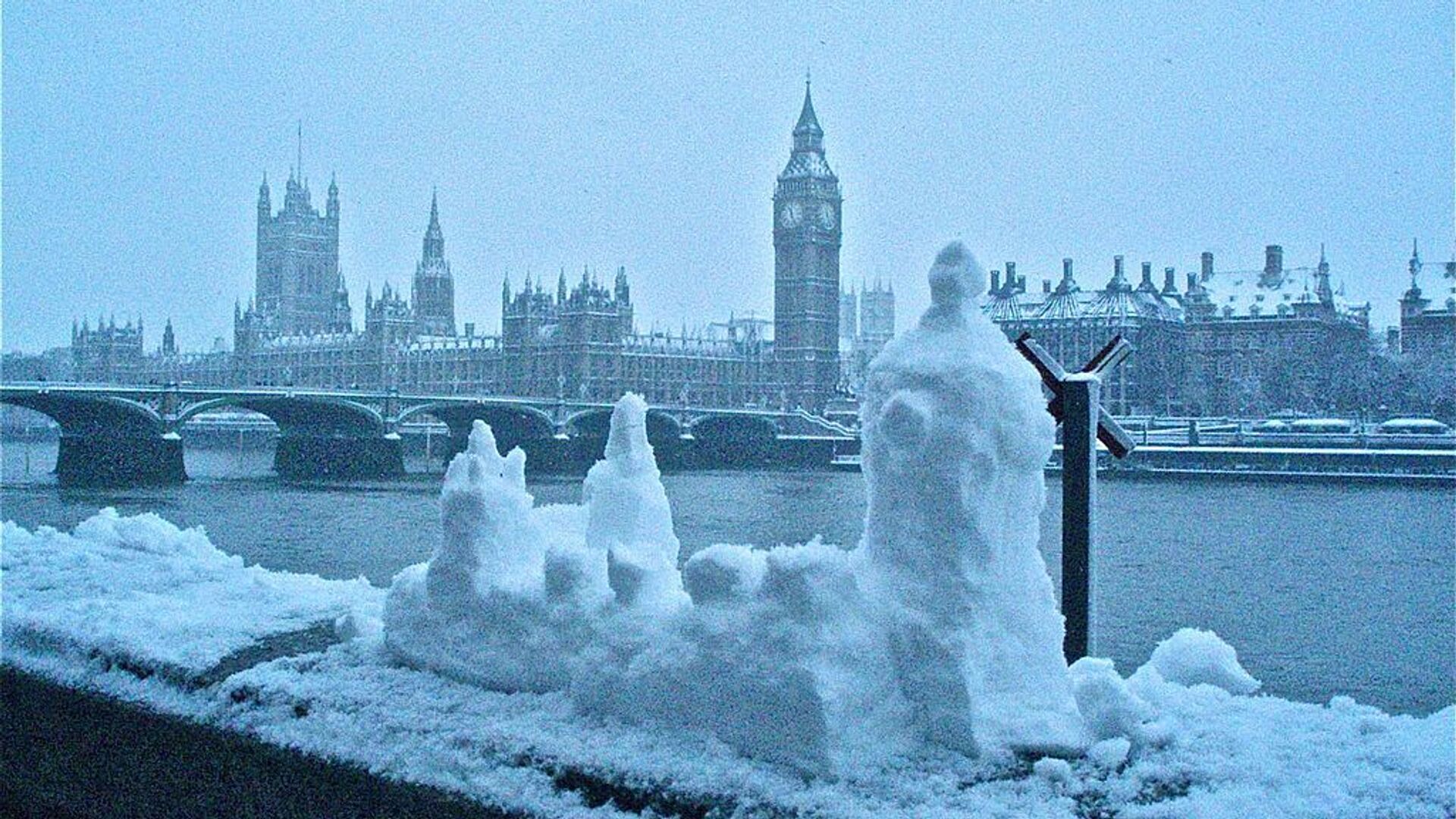As Europe Faces Soaring Energy Prices, British Press Claims Russia is to Blame
13:40 GMT 25.12.2021 (Updated: 15:24 GMT 28.05.2023)
Subscribe
European gas futures set a record of over $2,150 per thousand cubic meters earlier this week as nations scrambled to top up supplies after a perfect storm of factors sparked a continental energy deficit. Russia has signaled readiness to provide Europe with additional gas supplies, but its overtures have been dashed amid the Ukraine crisis.
Russia is to blame for the energy crunch facing the UK and the rest of Europe, The Telegraph newspaper has suggested.
According to the paper, “a sharp fall in European imports from Russia” is the prime factor behind the “deepening national crisis” being felt by Britain as a result of soaring energy rates, with Moscow said to be deliberately withholding extra spot market supplies, either for geopolitical or economic purposes.
The outlet noted that while the UK does not import much gas from Russia directly, it does purchase it from Europe, which depends on Russian supplies for about 40 percent of its total gas consumption.
The Telegraph cited a recent Oxford Energy Institute analysis, which calculated that Russian gas deliveries to Europe fell by 21 percent from January to November to 2021 compared to the same period in 2019, while supplies in December dropped by 33 percent compared with December 2019.
It’s not clear why the institute chose 2019 as the point of comparison, given the very different economic situation, and consequent supply demands, during the pre-Covid pandemic period. Gazprom recently said that it has delivered 15 percent more natural gas to European customers in the first nine months of 2021 than it had during the same period in 2020.
A second Telegraph piece, bombastically entitled “When Will Putin Turn on the Taps? Europe Faces Bleak Winter and ‘Astronomical’ Gas Prices,” similarly blamed Moscow for the “wild market swings” in gas prices, and suggested that Gazprom’s reduced exports through Ukraine could be a “geopolitical pressure tactic by Vladimir Putin” resulting in higher rates for the rest of Europe.
‘Gas Isn’t Watches, Underwear or Neckties’
Putin has dismissed claims by the US and its allies, including the UK, that Moscow is deliberately withholding gas supplies. The Russian president and other officials have pointed to European policymakers’ shift to short-term gas contracts, the unusually cold winter of 2020-2021, excessive dependence on green energy sources which failed to live up to expectations on energy returns, and competition between Europe and Asia, in explaining the current crunch. Moscow has also noted that many countries inexplicably failed to top up their underground gas storage reserves with fresh supplies from Russia in the summer and autumn months.
“Generally speaking, the trade in gas on the stock exchange…is not very effective, because it carries with it a lot of risks, since gas isn’t watches, underwear or neckties, not cars, and not even oil, which can be created and then stored anywhere, including in tankers in anticipation of a certain situation on the market. Gas is not traded this way, it cannot be stored in this way,” Putin said in a meeting with government officials in early October.
At the same meeting, Putin emphasized that “Russia has always been and continues to be a reliable supplier of gas to consumers all over the world, both in Asia and Europe,” and would always fulfill “all of its obligations in full…”
As for transit through Ukraine, Putin has said that Gazprom increased gas deliveries through Ukraine by eight percent in the first nine months of 2021, and would exceed its obligations to Europe to send at least 40 billion cubic meters of gas through the country’s gas transit infrastructure before the year is out, even if it was more profitable for Gazprom to use other routes. Moscow has also expressed fears that putting additional pressure on Ukraine’s gas pipeline infrastructure, which has seen almost no new investment since the Soviet collapse, could lead to an accident that deprives Europe of a major supply artery.
The Telegraph mentioned Nord Stream 2 – the joint Russian-Western European gas pipeline which promises to transport up to 55 billion cubic meters of gas per year from Russia to a hub in northeast Germany via the bottom of the Baltic Sea, and Moscow’s desire to see the pipeline be put online as soon as possible. Nord Stream 2 was completed and made partially ready for operations this fall, but is now being held up by German and European energy regulators –ostensibly due to its operator’s failure to provide necessary paperwork, until next spring or even later.
The newspaper implies that Russia may be deliberately holding back supplies to get the EU to approve the pipeline. Moscow has dismissed these claims, while suggesting that efforts by some European countries and politicians to put spokes in the project’s wheels were ridiculous.
At a meeting with Russian officials on Friday, Putin suggested that those who were holding back Nord Stream 2 from coming online were acting in a “foolish” manner, “since the delivery of additional gas supplies to the European market would undoubtedly lower spot prices on the market,” not just for the European Union, but Ukraine as well.


